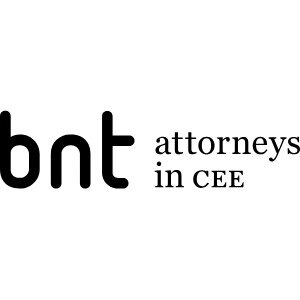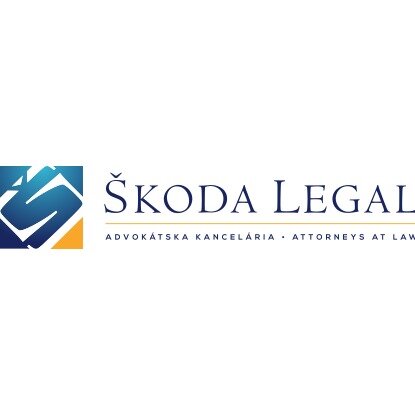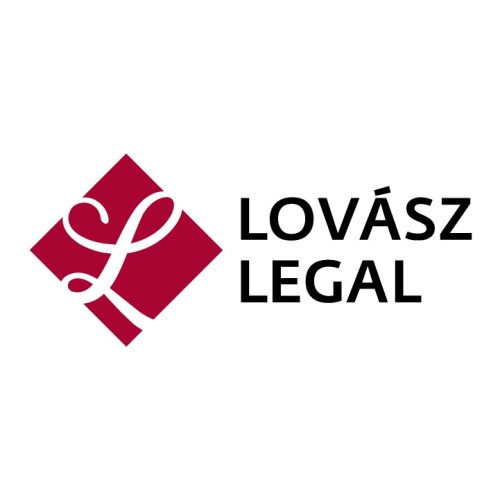Best Climate Change Law Lawyers in Bratislava
Share your needs with us, get contacted by law firms.
Free. Takes 2 min.
List of the best lawyers in Bratislava, Slovakia
About Climate Change Law in Bratislava, Slovakia
Climate Change Law in Bratislava, Slovakia, is a developing legal field that addresses the responsibilities, regulations, and rights concerning environmental protection and climate change mitigation. As Slovakia is a member of the European Union, national laws in Bratislava align closely with EU directives and international agreements such as the Paris Agreement. This area of law covers greenhouse gas emissions, renewable energy projects, sustainable development, emissions trading, and corporate obligations regarding climate impact. Both public entities and private businesses must comply with these regulations to contribute to the country's climate goals.
Why You May Need a Lawyer
There are several scenarios in which individuals, businesses, or organizations may require legal assistance regarding Climate Change Law in Bratislava. Some of the most common situations include:
- Understanding regulatory requirements for new construction, industrial projects, or business expansions with environmental impacts.
- Navigating the permitting process for renewable energy projects such as solar or wind installations.
- Ensuring compliance with greenhouse gas emission limits and reporting obligations.
- Participating in the EU Emissions Trading System or dealing with carbon credits.
- Seeking clarification of liability and insurance in cases of environmental harm or pollution.
- Contesting or appealing environmental penalties, fines, or administrative decisions.
- Translating and interpreting complex EU laws into actionable advice for local situations.
- Resolving disputes with local authorities or neighboring businesses regarding emissions or pollution.
Local Laws Overview
Climate Change Law in Bratislava is influenced by Slovak national policies, local municipal regulations, and EU legislation. Key frameworks include the Slovak Act on Environmental Protection, the Clean Air Act, and various government decrees on emissions and renewable energy. Notable aspects relevant to Bratislava include:
- Requirements for environmental impact assessments before large-scale construction or industrial expansion.
- Local action plans for reducing greenhouse gas emissions in alignment with the National Energy and Climate Plan.
- Mandatory reporting and inventorying of emissions for regulated industries.
- Regulations supporting the installation and operation of renewable energy facilities, such as solar panels on residential and commercial properties.
- Public participation in decision-making processes related to environmental permitting and climate-related urban planning.
- Fines, sanctions, and remediation requirements for non-compliance or environmental damage.
Bratislava’s authorities also encourage sustainable transport, green infrastructure development, and eco-friendly urban planning as part of their commitments under the EU Covenant of Mayors.
Frequently Asked Questions
What is Climate Change Law?
Climate Change Law refers to a body of regulations and policies designed to prevent, mitigate, and adapt to the effects of climate change. It includes laws about emissions reduction, renewable energy, and sustainable development.
Do Slovak companies need to follow EU climate regulations?
Yes. As part of the European Union, Slovakia and businesses operating in Bratislava must comply with EU directives on emissions, energy, and reporting as well as relevant Slovak national laws.
How can individuals or businesses reduce their legal risks related to climate change?
By understanding obligations under Slovak and EU law, maintaining thorough documentation, engaging in regular environmental audits, and seeking legal advice before launching projects with environmental impacts.
Are there incentives for adopting renewable energy in Bratislava?
Yes, there are government-supported schemes and subsidies for households and businesses looking to install solar panels, heat pumps, or other renewable energy technologies.
What penalties exist for violating climate-related laws?
Penalties can include significant fines, orders to remediate environmental damage, suspension of operations, or even criminal charges for serious violations.
Is public input required for environmental decision-making in Bratislava?
Yes. Many environmental impact assessments and major planning decisions involve public consultation or allow for public comment.
How is air quality regulated in Bratislava?
Bratislava follows national and EU standards for air quality, including monitoring, reporting, and actions to reduce pollutants in urban areas.
Can a business appeal an environmental fine?
Yes. Businesses have the right to appeal environmental enforcement actions through Slovak administrative and judicial processes.
Do tenants or homeowners have responsibilities concerning climate law?
Homeowners and tenants must comply with energy and emissions standards when making modifications to properties or installing new heating systems, particularly in multifamily buildings.
How do Slovak climate laws affect new real estate developments in Bratislava?
New developments must undergo environmental impact assessments and secure appropriate permits, taking into account sustainable building requirements and potential effects on local ecosystems.
Additional Resources
People seeking further information or guidance can contact these resources:
- Ministry of Environment of the Slovak Republic - provides information on climate legislation and projects.
- Slovak Environment Agency - supports compliance and education on environmental laws.
- Bratislava City Office - handles local permits and climate action plans.
- Slovak Bar Association - helps individuals find a qualified environmental lawyer.
- EU Environmental Law helpdesk - offers information about general EU environmental compliance.
Next Steps
If you require legal assistance relating to Climate Change Law in Bratislava, start by clearly identifying your issue or question, then gather any related documents such as permits, official correspondence, or project plans. Reach out to a qualified lawyer with expertise in environmental or climate law, ideally one familiar with both Slovak and EU regulations. Initial consultations can help clarify your obligations, rights, and possible solutions. For ongoing compliance needs, you may wish to arrange regular legal reviews or staff training sessions. It is essential to stay informed about updates in local and EU climate legislation to adapt your actions and plans accordingly.
Lawzana helps you find the best lawyers and law firms in Bratislava through a curated and pre-screened list of qualified legal professionals. Our platform offers rankings and detailed profiles of attorneys and law firms, allowing you to compare based on practice areas, including Climate Change Law, experience, and client feedback.
Each profile includes a description of the firm's areas of practice, client reviews, team members and partners, year of establishment, spoken languages, office locations, contact information, social media presence, and any published articles or resources. Most firms on our platform speak English and are experienced in both local and international legal matters.
Get a quote from top-rated law firms in Bratislava, Slovakia — quickly, securely, and without unnecessary hassle.
Disclaimer:
The information provided on this page is for general informational purposes only and does not constitute legal advice. While we strive to ensure the accuracy and relevance of the content, legal information may change over time, and interpretations of the law can vary. You should always consult with a qualified legal professional for advice specific to your situation.
We disclaim all liability for actions taken or not taken based on the content of this page. If you believe any information is incorrect or outdated, please contact us, and we will review and update it where appropriate.














